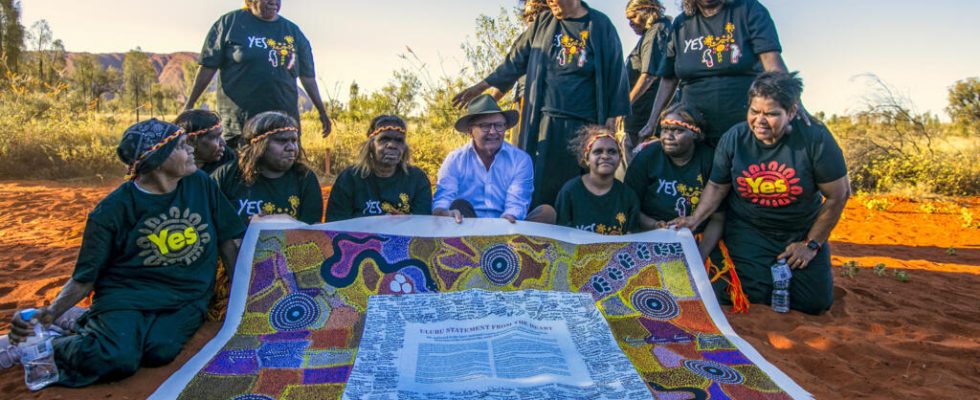Aboriginal leaders have broken their self-imposed week-long silence to condemn the failure of the October 14 referendum, which proposed recognizing indigenous populations in the Australian Constitution and giving them more rights.
3 mins
Last week, 60% of Australians voted “ No » to the question of whether the 1901 Constitution should be amended to recognize the country’s first inhabitants – the aboriginal populations – and grant them more rights.
In a scathing open letter addressed to the Australian government, Aboriginal leaders castigated the point of view “ terrible and petty » of millions of Australians. The document brings together the opinions of indigenous leaders, members of their communities and organizations who supported the “yes” vote in the referendum.
According to “yes” supporter Sean Gordon, the open letter was not directly signed so that any member of the country’s indigenous peoples who so wished could join in – Aboriginal and Torres Strait Islander people, who represent 984 000 people, or 3.8% of the Australian population.
“ Australia has chosen to make itself less liberal and less democratic »
“ We do not accept for a moment that this country is not ours. It always has been and forever will be », Wrote the authors of the letter. “ The truth is that the majority of Australians have committed a shameful act, knowingly or unknowingly, and there is nothing positive to come from it », adds the letter. “ By denying our right to be heard on issues that concern and affect us, Australia has chosen to make itself less liberal and less democratic », they estimate.
The group also denounced the scale of “ deliberate misinformation » during the campaign led by the conservative camp to vote “no”, which was “ unprecedented “. “ This misinformation proliferated with impunity on social media, was repeated by mainstream media, and caused a tsunami of racism against our people. »
Healing the wounds of a colonial past
“Yes” supporters, including Prime Minister Anthony Albanese, considered the referendum as a way to unite the country and to heal the wounds of historical discrimination inflicted on indigenous peoples during the colonization of the country. People who have a life expectancy eight years lower than that of other Australians are on average poorer, more often incarcerated and have less access to education.
Instead, the election campaign highlighted the deep divisions that still run through Australian society more than two centuries after British colonization.
This majority of “no” votes in the referendum also rejected the creation of an advisory council – nicknamed “The Voice” – to Parliament and the government, to issue opinions on laws and public policies that affect indigenous populations. In this context, the authors of the open letter expressed their intention to create their own “Voice” in the face of “ injustices » suffered by their people.
(With AFP)
Read alsoAustralia: death in custody of a 16-year-old Aboriginal boy
